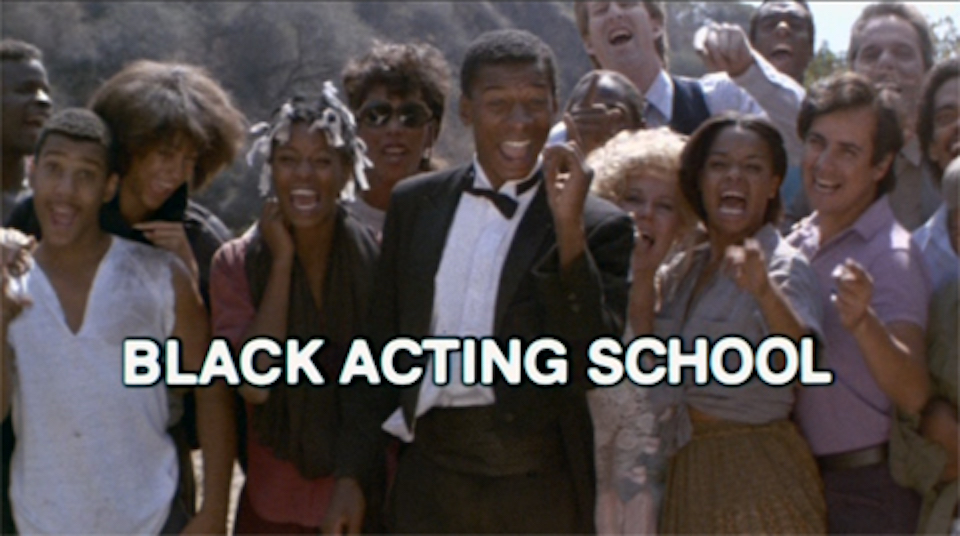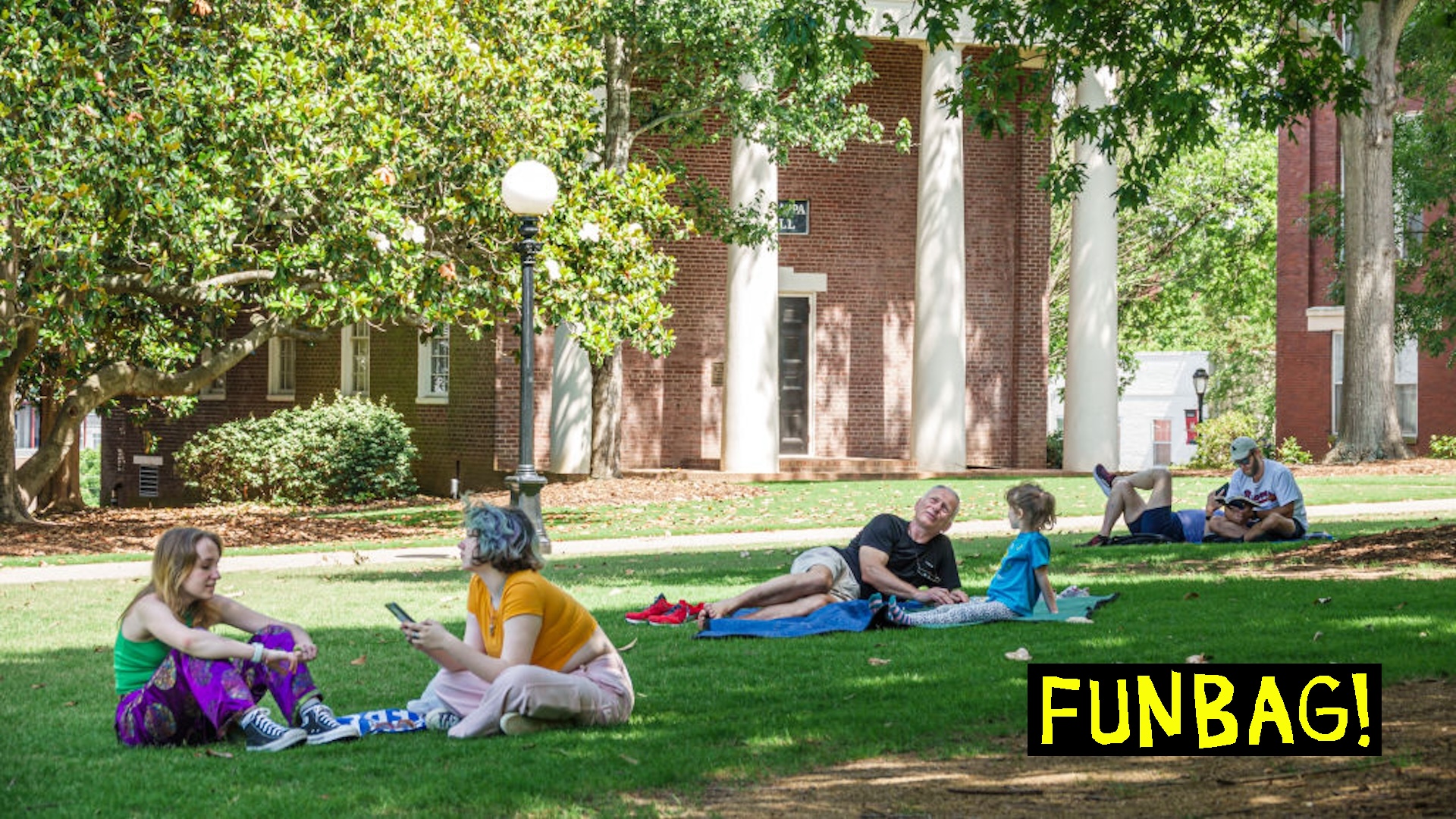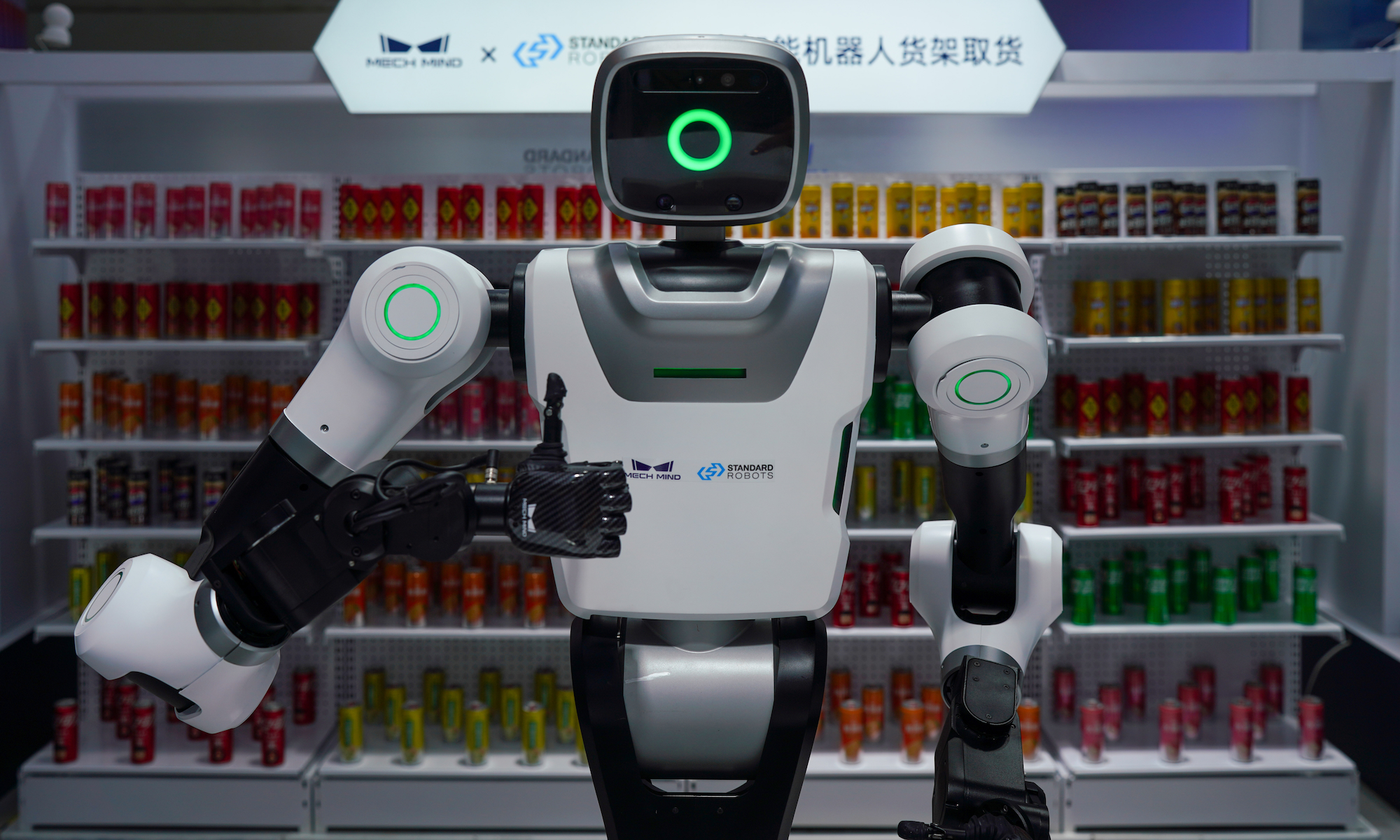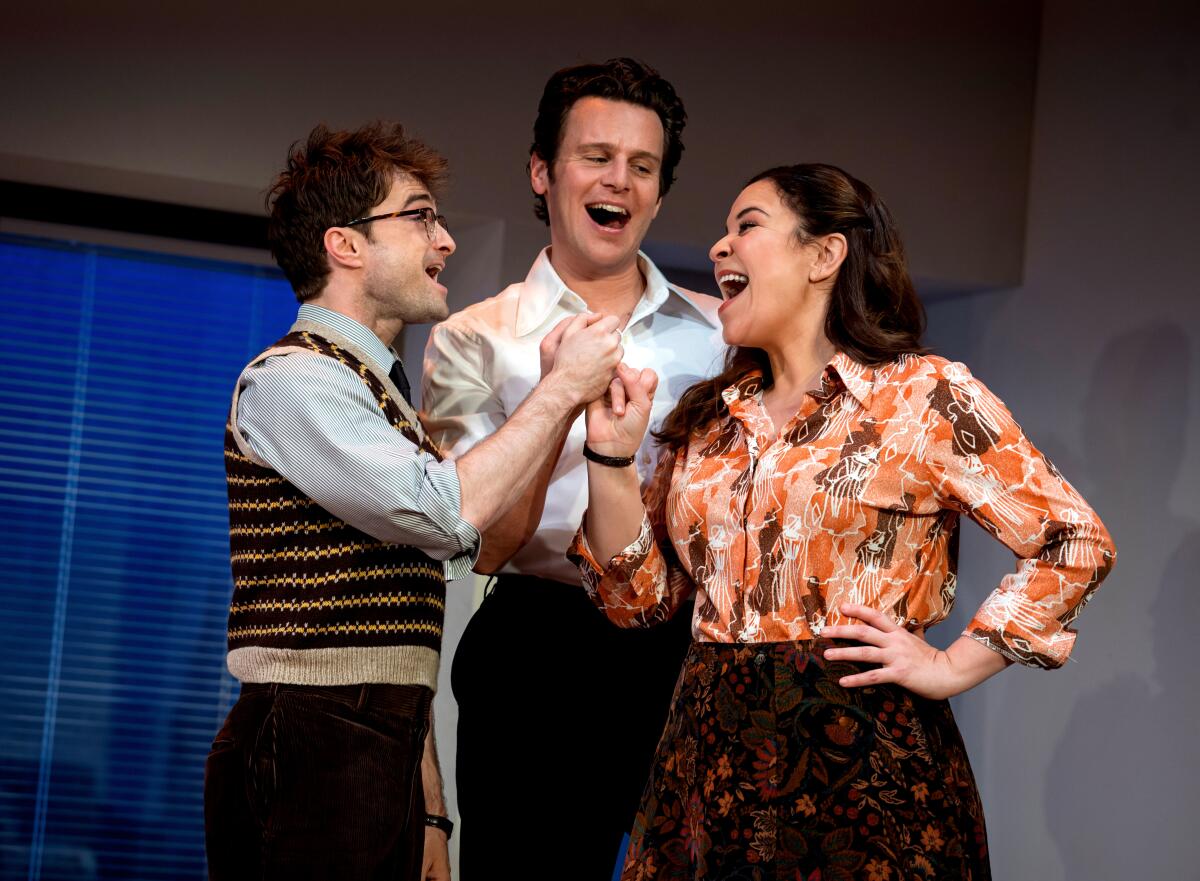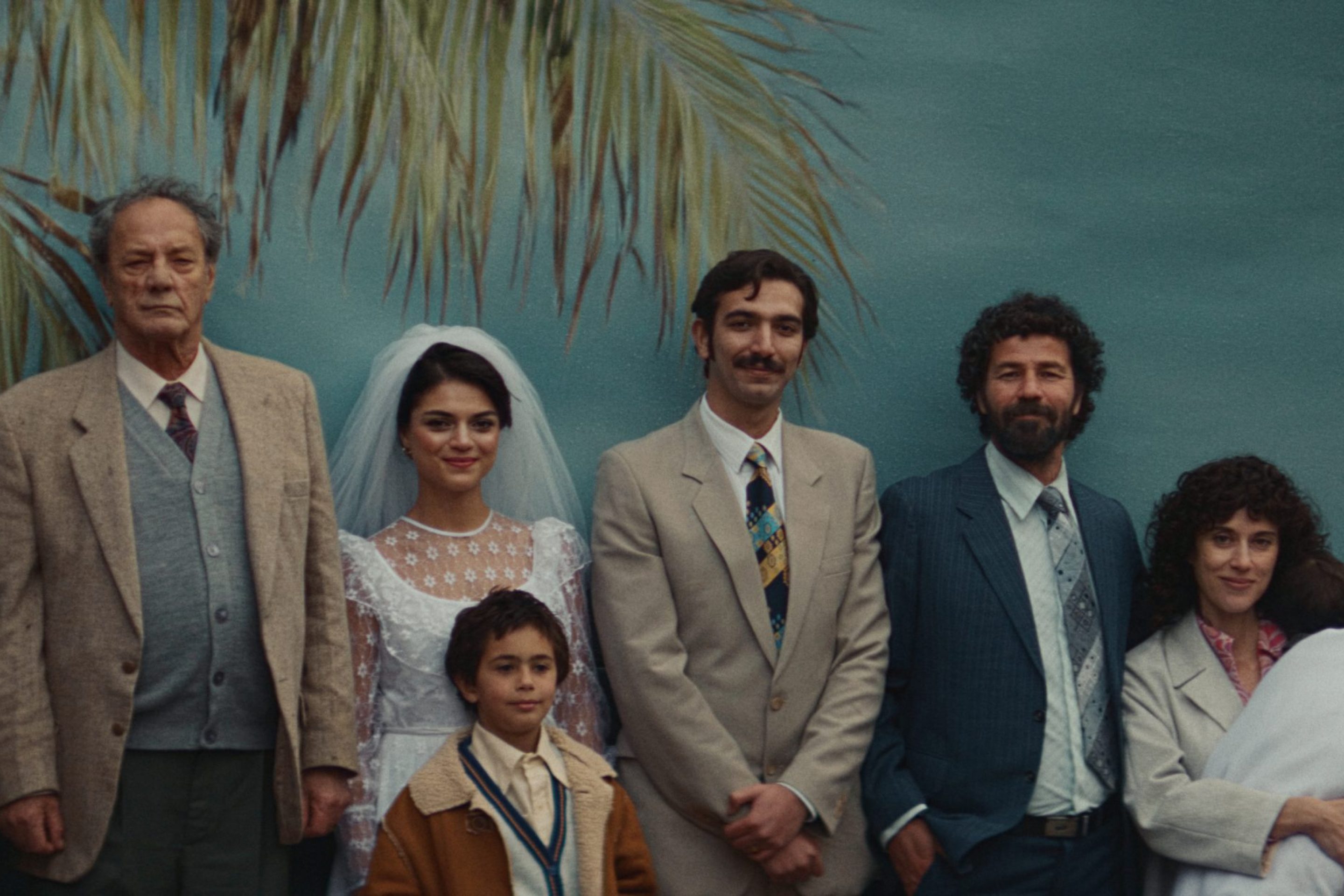The story of Hollywood Shuffle, the 1987 satire starring, directed, and co-written by Robert Townsend, is as much the story of Townsend himself as it is that of Bobby Taylor, the movie's ostensible main character. That makes it also the story of black Hollywood in the 1980s, an industry defined as much by how far it'd come as how far it still had to go. Watching the movie today, I am struck by the ways this movie is and is not still relevant to the modern movie industry, and how the industry's "growth" makes it so a present-day movie like this might not get made at all.
Bobby Taylor is a man with a dream: to be the greatest actor ever born. He practices lines at home, where he lives with his mom, grandma, and younger brother, and makes excuses to skip shifts at Winky Dinky Dog, the hot dog stand where he works, on audition days. Bobby has appeared in a few things here and there, nothing major, and because he's a neophyte, and because Hollywood is racist, he finds the only roles he's up for ask him to portray the most degrading, coarse, stereotypical depictions of black life. Bobby and his fellow auditionees for Jivetime Jimmy's Revenge are clearly talented, driven, and committed, and are willing to put up with a parade of indignities—in their most common form, Jivetime's white executives blithely offering feedback like, "Yes, but this time try to do it ... blacker," or, "Nope, not black enough. Next!"—in order to realize their dreams.
As Bobby pursues the starring role in Jivetime Jimmy's Revenge, he wrestles with his ambivalent emotions: joy and excitement at the prospect of nabbing the lead in a feature-length movie; revulsion at the jive-talking, shattered English–speaking, pimp-strutting character of Jimmy; and uncertainty about how to weigh his career ambitions with his personal pride. Eventually, Bobby does get the gig, but on the first day of shooting, while doing a scene and catching the eyes of his brother, grandma, and girlfriend in attendance, he quits on the spot, saying the movie is "not the kind of acting I wanted to do. This is ... this is bullshit."
That may sound like a thin plot for a movie, and it is. But it's everything that surrounds that main storyline, the little skits of daydreams and in-world TV shows and imagined movies that double as send-ups of big Hollywood hits, plus Townsend's story itself, that give the movie most of its laughs, its heft, and its impressive range.
Plus, this movie is fucking hilarious. Because Bobby Taylor's personal journey is not really the point of the movie, Hollywood Shuffle is free to hammer home its true takeaway—that Hollywood is painfully, hilariously racist, and trying to navigate the movie industry as a young black actor is hard on several levels—in as many varied forms as Townsend and co-writer Keenan Ivory Wayans can think up. Like with Sneaking in the Movies, a reimagining of Siskel and Ebert's At the Movies with two young black men breaking down why movies like Crazy Larry and Chicago Jones: Temple of Dooms do or do not work for them, pointing out which sets of cultural precepts get reified as the standards for film criticism and which are not. Or a nightmare Bobby has of a casting session where the producers' manic search for an "Eddie Murphy type" nearly transforms a distraught Bobby into Murphy as if by black magic. Or probably the movie's most famous scene, an infomercial for the Black Acting School where white faculty members teach black students how to convincingly "act black":
What makes Hollywood Shuffle more than a random collection of funny sketches is the movie's genuine heart, which is imbued by Townsend's gifts as an actor. The scene where Bobby quits Jivetime is probably the best encapsulation of Townsend's comedic and dramatic sensibilities. In it, he oscillates between outrageously funny, his limbs undulating wildly as he ramps up the "jive-assing" at the director's behest, to crestfallen when he catches the eye of his embarrassed family members on set, to dejected but trying to fight through it so as not to blow his big moment before realizing he can't continue on. The movie's emotional core comes from Bobby's relationships with his family, which feels real, sweet, and measured, never played up for melodrama. And it's the characters', and especially Townsend's, warmth as actors that makes those relationships feel so lived in. The material is clearly deeply personal to Townsend, and it comes through in his performance.
It's easy to understand why Townsend found Hollywood's stifling nature such fertile ground for his searing observations and exaggerations when you know his own story. Townsend discovered his love of performing as a teenager in his native Chicago. He was involved with several local theater and improv troupes there, before moving to New York City in the late 1970s. It was in New York that Townsend and Wayans met, at another improv troupe, and not long after becoming friends the two moved to Los Angeles to try to break into Hollywood.
Both Townsend and Wayans found work in LA, mostly in the form of commercials and TV. Townsend's biggest early break was when he got a part in A Soldier's Story, a well-received 1984 Denzel Washington vehicle. Enlivened by the meaty part in a serious movie, Townsend told his agent he wanted to be in more movies like that. The agent replied that Hollywood only makes one black-led movie like that a year, and Townsend was already in it, so he needed to be patient. In the interim, Townsend continued reading for the same kinds of insultingly stereotypical bit parts as before, becoming increasingly frustrated with the discrepancy between his artistic ambitions and Hollywood's disinterest in serving up roles for black actors that fit those ambitions.
Hollywood Shuffle was born from those thwarted ambitions. Townsend funded much of Hollywood Shuffle himself, emptying the $60,000 he'd saved up over his years appearing in commercials and touring with his standup routine. For what he couldn't afford, he borrowed—famously with a series of credit cards he signed up for right when his bank account was hitting dire straits. For what he couldn't borrow, he begged for, asking the crew members of sets he was acting on if they'd let him take their unused short ends to use as film for this feature he was making. After two years of spending money to shoot, running out of money, doing some commercials or standup sets to make some more money, and then spending that money to shoot some more, Townsend finally finished Hollywood Shuffle.
The movie is certainly rough around the edges, but Hollywood Shuffle's rough edges and utter disinterest in what qualifies for "professional" is a large part of what makes it good. This is a passion project made by people who hadn't ever done what they were trying to do. You can feel that passion in every crammed-in joke a more disciplined editor might've snipped out. You can see, in the movie's structural ingenuity and stylistic fluidity, how freeing it can be to make a thing unburdened by the industry's calcified rules what things are "supposed" to look like. The movie is a statement of intent from an artist who didn't know if he'd be able to make another statement again, a frustrated, seething salvo aimed at an industry he wishes was better.
Did the movie work? Is Hollywood better? That's of course no simple answer. Hollywood Shuffle did succeed in getting its creators enough praise and notoriety to get more work on their own terms. The success of Hollywood Shuffle directly led to Wayans getting funding to make I'm Gonna Git You Sucka, which directly led to Fox approaching him about creating a sketch comedy show that became In Living Color, which led directly to the Wayans brothers dynasty.
The movie was also the first job of cinematographer Peter Deming's career. Deming has gone on to become one of the more successful and recognizable cinematographers of his generation, specializing in comedy and horror, known most prominently for his collaborations with David Lynch. You can see Deming's talent already in the appropriately varied visual look each of the sketches, be it the artsy black-and-white of the film noir-esque Death of a Breakdancer, the washed out and cheap-looking Black Acting School infomercial, or the grotesque close-ups and disorienting pacing of Bobby's "Eddie Murphy type" nightmare.
Townsend's career since Hollywood Shuffle too has been a success, if a more measured one. He followed up his debut with by far the biggest project he's been involved in, directing Eddie Murphy's smash hit standup special, Raw. From there, he got studio backing to direct a string of movies in the 1990s, The Five Heartbeats, Meteor Man, and B.A.P.S., the first two he wrote and starred in as well. All three movies have developed cult followings amongst predominantly black fans who appreciate Townsend's portrayals of a black life not traditionally seen on the big screen, but none did particularly well at the box office. Townsend has continued to work steadily ever since, but the bulk of his output has been on TV movies for networks like Showtime and the Disney Channel. Hollywood Shuffle remains his most singular work, and it showcases a wide-ranging talent that persisted but was never realized quite as fully as the movie portended.
As for the industry as a whole, the question is more complex. On one hand, it certainly seems like there are better, more numerous roles for black actors of all statuses, and there are more opportunities for black writers and directors to create and guide the kinds of black stories that are being told. On the other, the American independent film renaissance Hollywood Shuffle was an early member of is gone, and with it has gone the fertile ground that produced so many distinctive voices, unique perspectives, and radical visions. There are more things being made now than ever, but they increasingly look and feel the same. Everyone shoots for the same Prestige Film/TV look, which they've all learned at film schools that teach the same camera techniques and editing best practices. "Independent cinema" has become an aesthetic more than an actual, factual description, and any personal vision or creative approach gets beaten out of filmmakers before they're even handed a camera.
A 30-year-old Townsend today could probably have an easier time getting someone else to pay for his debut feature, but it's doubtful the resulting movie would thrum with invention and unruly liveliness the way Hollywood Shuffle does. Should the hypothetical present-day Townsend's debut turn out well, he'd probably get promptly escorted to the top of Hollywood's chain, and handed the industry's most coveted gig: a chance to direct a comic book movie. With that under his belt, he'd be tied up for the next several years making interminable sequels, trading his prime creative years and any ambitions he might've had to make something small and personal for untold sums of money.
Ultimately, more important than the specific production patterns of this era vs. that of Townsend's, the biggest reason Hollywood isn't as far along in terms of racial representation as it might imagine is that the industry is still under the eye of the white gaze. To a large extent, which movies get made is determined by what white executives want to see—or, in a more cynical framing, what executives believe white audiences want to see. When this white gaze wanted to see broad, offensive stereotypes of jive-talking blacks in the hood, the kinds of movies and TV shows Townsend satirizes in Hollywood Shuffle, that's what Hollywood served them.
Today, when that same gaze has developed a taste for saintly blacks struggling bravely under conditions of poverty and oppression, Hollywood is right there with simplistic, didactic tales of noble blacks overcoming. Every year, the Oscars nomination list is awash with purportedly powerful performances of black characters who exist to teach white characters and audiences what Living While Black feels like, oftentimes set in the safely distant and morally resolved Civil Rights Era. Every year, I find myself laughing with the other black people in my life about how clear it is that those movies are not for us.
The ending of Hollywood Shuffle is, on its face, a happy one, but upon further inspection it feels ambiguous. Bobby has quit Jivetime Jimmy's Revenge, quoting his grandma's retort to Bobby's mom that Jivetime was just a job, the same as any other, that "there's always work at the post office." The movie then cuts to a pristine set, where a pampered Bobby gets ready to shoot a wholesome PSA extolling the virtues of working for the post office, a job anyone could be proud of. But should this vignette be taken at face value? Has Bobby indeed won respect and earned himself a nice, though decidedly minor, gig acting in a PSA? Or has Bobby given up on his acting dream and actually become a postal worker himself, cast to star in the PSA not as an actor but as an example? Or is the whole thing yet another of Bobby's daydreams, and the real Bobby is about to wake up, remember how the movie business has worn him down, and gone back to work at Winky Dinky Dog, to once again be heckled by his coworkers who always knew he'd fail?
We know that Townsend himself stuck it out, and was rewarded with a long and fruitful career, though he never lived up to what arguably could've been a Woody Allen–like career. We can only speculate what happened to Bobby after that PSA, whether he was able to carve out a respectable acting career for himself without selling out his people, or if he woke up from a dream and carried on his quotidian life as a postal worker or whatever. What we do know is that present-day Bobby Taylors/Robert Townsends probably have it a little easier than their forebears, thanks in large part to the artistic successes of Hollywood Shuffle and the like. But the terrain of Hollywood remains treacherous and in many ways antagonistic to idiosyncratic artists and works that don't easily adhere to the tastes of the mainstream white consumer. And there might not be work at the post office to fall back on for much longer.
